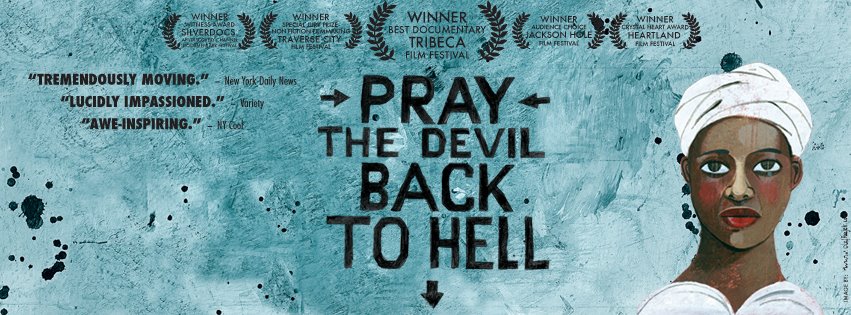Stemming from a long history of marginalizing women, mainstream media and international leaders rely heavily on the categorization of issues as “women’s issues” when discussing problems such as inequalities in education, inclusion of women in decision making, and gender violence. In the same way as women, societal problems that are categorized as “women’s issues” are considered of secondary concern to the growth of society. “Women’s issues” should be framed human rights issues because they are the manifestation of deeper structural and cultural inequalities that affect the entire population and often result in violence.
While mainstream media portrays women as victims and perpetuates the idea that “women’s issues” need men to solve them, the reality is that women are fierce advocates and fight to address what are really human rights issues in their communities, in spite of oppression. Women peacebuilders are recognizing and ameliorating the inequalities and discrimination that are the roots of conflict. We need to reshape the conversation about women’s role in peacebuilding from a portrayal of women as victims of violence into a discussion about women as champions of peace and human rights.
In recent years, a number of films have been produced that are taking on the task of changing the way women working and living in areas of conflict and oppression are discussed. These films are shifting perceptions by telling stories of women’s incredible leadership, relentless determination, and direct engagement in their communities. These films reflect what we, as women, fundamentally already know: women make influential leaders because of their unique perspectives, motivations, and roles in society.
The following seven films are a powerful form of advocacy that question rhetoric and change the way people talk about the role of women in peace and conflict. They have helped bring attention to the importance of women in leadership, the work of women peacebuilders, and the oppression women face in a male dominated world. They lend a microphone to the voice of women leaders, and the time for the world to listen is long overdue.
1. Pray the Devil Back to Hell – This film tells the incredible story of a group of Liberian women who fought for peace in their communities through protest and advocacy. In an interview during the film, one woman reflects, “These women had seen the worst, but they still had that vibrance for life.” Their story is one of courage and resiliency in the face of devastating violence. It is an example of the unyielding determination of women.
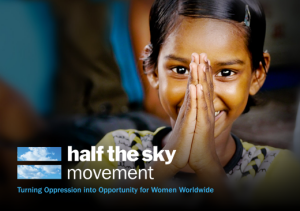
2. Half the Sky: Turning Oppression into Opportunity for Women Worldwide – Nicholas Kristof and Sheryl WuDunn tell women’s stories of experiences with oppression and violence in various societies and cultures in this powerful documentary. It is a call for an end to oppression and a start to empowerment. The film has developed into a larger movement that continues to advocate alongside the film
3. Women, War, & Peace – This five part series, premiered on PBS, takes a broad look at conflict’s influence on women and vice versa. It fundamentally questions the assumption that the waging of war and peace are the sole domains of men.
4. Bhutto – Benazir Bhutto once stated, “Democracy is the greatest revenge.” It was a revenge she dedicated her life during her two terms as the Prime Minister of Pakistan. She fought for women’s rights, eradicated polio, and constantly faced controversy and attacks on her leadership. This film documents her bravery and legacy as an international leader.
5. Pushing the Elephant – This film follows the life of Rose Mapendo, an advocate for refugees, women, and peace in the Democratic Republic of Congo. The audience witnesses her life as an advocate and a mother as she speaks to people around the world about her experiences as a victim of violence and a peace builder.
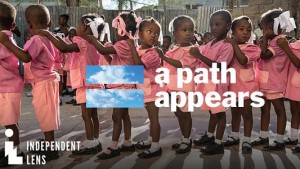
6. A Path Appears – From the makers of Half the Sky: Turning Oppression into Opportunity for Women Worldwide, this film follows journalists and advocates for women’s rights to reveal the continuing oppression of women. It reveals the roots of women’s struggles and embarks on a journey that explores solutions and takes actions to change women’s lives. Engaging internationally famous individuals in interviews and journeys, the creators aim to draw more attention to the issue of woman’s rights
7. Taking Root: The Vision of Wangari Maathai – This film is the story of Nobel Peace Prize Laureate Wangari Maathai who began a national movement for safeguarding the environment, human rights, and democracy with the simple act of planting trees. Maathi once stated, “In a few decades, the relationship between the environment, resources and conflict may seem almost as obvious as the connection we see today between human rights, democracy and peace.” This documentary calls its audience to reflect on their role in human rights and take action.
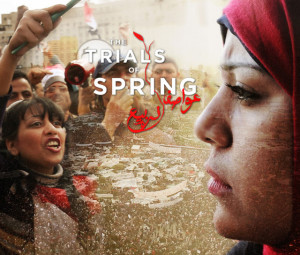
8. The Trials of Spring – This film documents the stories of 9 women involved in 6 revolutions during the Arab Spring. The most recently made film on this list, The Trials of Spring premiered at the 2015 Human Rights Watch Film Festival on June, 12th. Through this film director Gini Reticker works to dispel Western stereotypes of politically apathetic or weak Middle Eastern women.
In recent years, research has systematically proven that women leaders are more persuasive, more inclusive, more likely to take risks, and demonstrate more resiliency in the face of insurmountable challenges when compared to their male counterparts. The films discussed above reflect what research has proven and provide a narrative of women’s peacebuilding. Their stories are only a sample of the incredible courage and strength that women leaders have demonstrated in the face of endless violence and conflict around the world. Their actions have encouraged community growth, empowered women, educated children, and taken direct steps to end violence.
Despite the work of films, and other forms of advocacy, to promote the reshaping of the conversation about women in leadership and the proof given by research of women’s capabilities, there is still a large gap between women and men in positions of leadership and decision making. Currently, only 22% of parliamentary leaders throughout the world are women. Of 585 Peace Agreements settled between 1990 and 2010, only 92 referenced women and their role in society. In 2013, a UN survey of 13 countries revealed that less than 0.4% of funding for national budgets was allocated toward women’s empowerment programs.
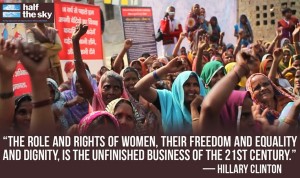
Women’s leadership is not a “women’s issue;” it is a human rights issue and should be relegated the same urgency and attention as areas like international security, government reform, and economic growth. Women have proven their capabilities as peacebuilders and have a right to equal representation in leadership. These films are part of the first step in what will be a long process of realizing human rights and creating sustainable peace through the inclusion of women in decision making. With women’s inclusion, proper decision making will prioritize and address the root causes of conflict, give a voice to the needs of individuals and communities, and lead to a more sustainably peaceful society.















